#met cloister museum
Explore tagged Tumblr posts
Text
The Cloisters - Experiencing The Middle Ages in NYC
The Solo Scale: Make sure that you’ve got decent phone coverage and good directions if you’re headed out this way as it is a bit of a hike outside the city where you could get turned around, but wandering through Fort Tryon park to get to the Cloisters is a great solo activity. Did you know that the Met has a second property in New York? That wouldn’t be shocking, but what might be surprising…

View On WordPress
#fort tryon park#met cloister museum#met cloisters#New York City#nyc attractions#nyc museums#off the beaten path nyc#the metropolitan museum
0 notes
Text
#TextileTuesday :

Textile Fragment with Unicorn, Deer, Centaur and Lion
Made in Scandinavia (possibly Sweden), c.1500
Wool intarsia & applique with gilt leather & linen embroidery
52 3/4 × 52 3/8 in. (134 × 133 cm)
The Met Cloisters 2011.430
“This textile features a combination of real and imaginary creatures. The inscription, only partially legible and apparently mixing Latin and Italian, invokes the name of Christ and the Church, indicating the cloth’s original use in a religious context.”
#animals in art#european art#15th century art#16th century art#Renaissance art#Scandinavian art#textiles#Textile Tuesday#deer#unicorn#centaur#lion#Met Cloisters#Metropolitan Museum of Art New York
79 notes
·
View notes
Text
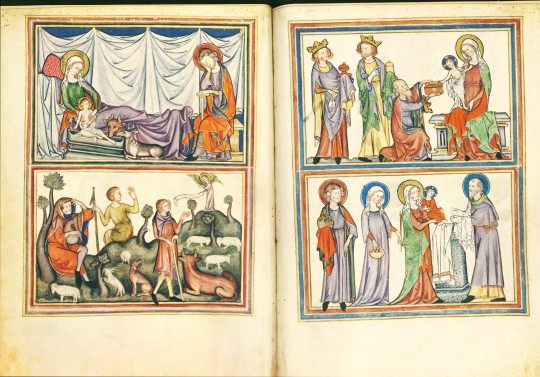
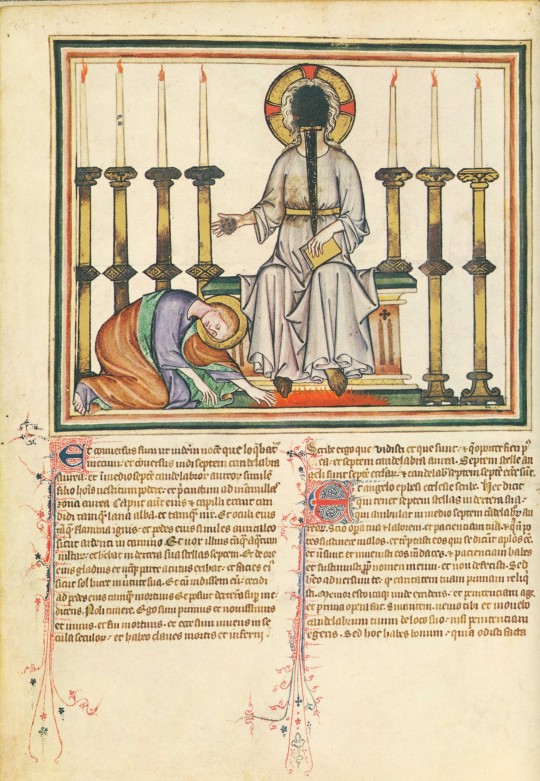



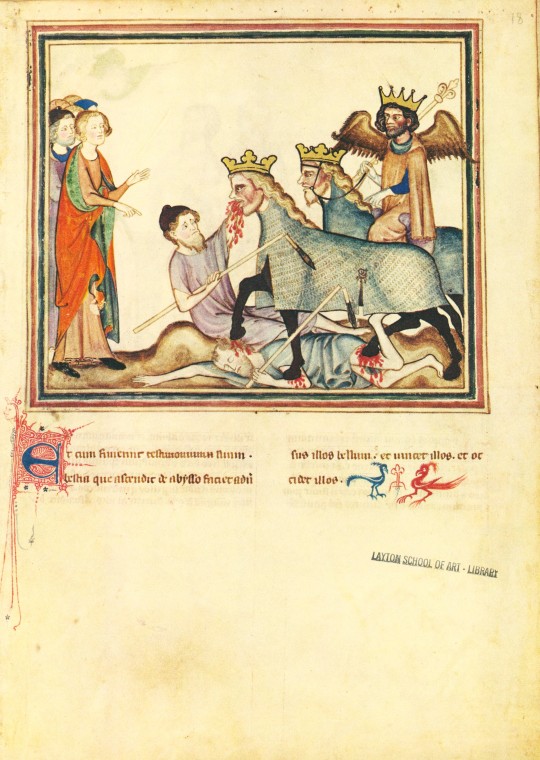
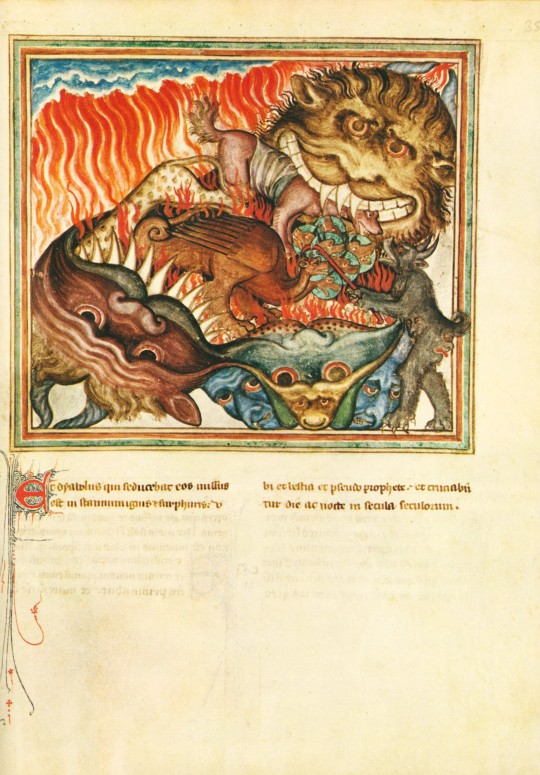

An Apocalyptic Manuscript Monday
This week we present our facsimile of the 14th-century Cloisters Apocalypse, published in 1971 by the Metropolitan Museum of Art in New York. As described in the introduction to the commentary about the manuscript, “[famine], pestilence, strife, and untimely death inspired apocalyptic fantasies and movements in Europe throughout the Middle Ages” (page 9), and this environmental influence led to the popularity of apocalyptic manuscripts like this French Apocalypse. Made in the 1330s for a Norman aristocratic couple, this manuscript has a few interesting details that set it apart from other Apocalypses, especially in relation to two other manuscripts in London (British Library, Add. Ms. 17333) and Paris (Bibliothèque Nationale, ms. Lat. 14410) that share similar formats, styles, and sequences with the Cloisters manuscript.
The first unique detail is the prefatory cycle of the life of Jesus in the introductory folios (1-2 verso). Since the Apocalypse of St. John the Divine (also known as the book of Revelation) was written by a titular St. John, prefatory cycles in Apocalypses usually consist of his life, rather than Christ’s. The other aspect of this manuscript that makes it distinct amongst its sister manuscripts is the addition of a dedication page on folio 38 verso. This page shows a man and woman kneeling in front of a tonsured saint and the Virgin and Child, respectively, representing the people for whom this manuscript was originally made for.
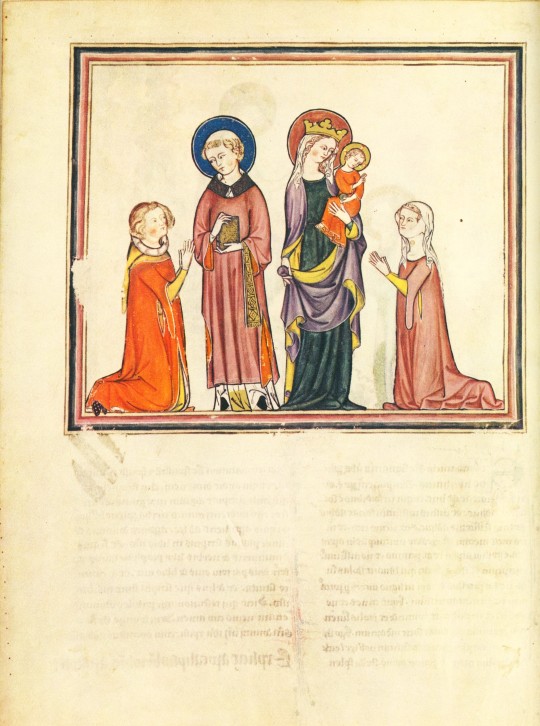
Interestingly, this manuscript also has multiple pages added to the original manuscript. Pasted on the inside front cover are handwritten provenance notes. The manuscript also did not originally include chapters and verses 16:14 through 20:3, and pages with this text were later added to the manuscript after the dedication page.
The materials used to create this manuscript include tempera, gold, silver, and ink on parchment with a later leather binding. If you are interested in seeing this unique Apocalypse manuscript, you can either use our facsimile, visit Gallery 13 of the Metropolitan Museum of Art’s Cloisters where the original is on display, or view their digital presentation of the manuscript.
View other posts on our facsimiles of illuminated manuscripts.
– Sarah S., Special Collections Graduate Intern
#manuscript monday#apocalypse#cloisters apocalypse#the cloisters#met#the metropolitan museum of art#manuscripts#illuminated manuscripts#french manuscripts#book of revelation#Revelation of St. John#facsimiles#manuscript facsimiles#Sarah S.
75 notes
·
View notes
Text





The Cloisters Playing Cards
1475-80 A.D., South Netherlandish, paper with pen and ink, opaque paint, glazes, and applied silver and gold
#met#the metropolitan museum of art#met cloisters#cards#playing cards#medieval art#netherland art#European art#medieval#kourotrophos
36 notes
·
View notes
Text









Christmas at the Met Cloisters
8 notes
·
View notes
Text

The Met Cloisters, NYC, 2024
Photo: Bruce Morrow
#bruce morrow#brucemorrow#bruce-morrow#digital art#the moment that#my art#myart#themomentthat#the moment that we are today#the met cloisters#the cloisters#the metropolitan museum of art#medieval#medieval art#artists on tumblr#black artist#photographers of tumblr#fine art photography#on iphone#iPhone#shadows
13 notes
·
View notes
Text
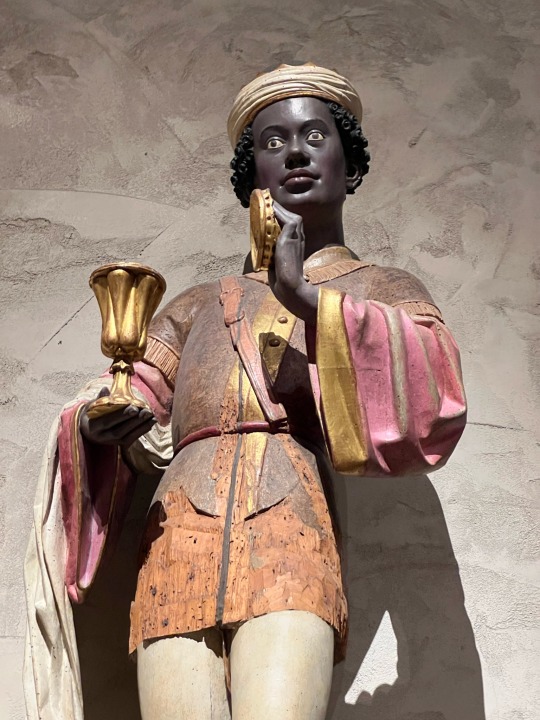
Black Magus, Germany, 15th century. Photo by me.
From the Met Cloisters.
14 notes
·
View notes
Text
youtube
Cécile McLorin Salvant performs "D'un feu secret," from her new album, Mélusine, accompanied by Sullivan Fortner on harpsichord and lutist Dušan Balarin, in the Unicorn Tapestries Room at The Met Cloisters in this new video as part of The Metropolitan Museum of Art's performance series, MetLiveArts. It’s the second of three performances she filmed there of songs from the album, following last week's title track.
#cecile mclorin salvant#d'un feu secret#melusine#sullivan fortner#harpsichord#dusan balarin#lute#unicorn tapestries#the met cloisters#the metropolitan museum of art#metlivearts#nonesuch#nonesuch records#Youtube
28 notes
·
View notes
Text





















The Met Cloisters
#art#art history#anthropology#academia#archaeology#medieval art#medieval#museum#the metropolitan museum of art#the met cloisters
4 notes
·
View notes
Text


heading into performance week ✨️🏛🕯🫶🏽🗿🏺
#sor juana ines de la cruz#sor juana#primero sueño#primero sueno#met cloisters#opera#met live arts#career#art#singers#museums#chi chers#world premiere#world premiere opera#sjaella
3 notes
·
View notes
Text

#the metropolitan museum of art#the metropolitan museum of art cloisters#the Met#nyc#new york#new york city#museum#medieval#King Arthur#dark academia#academia aesthetic#aesthetic#middle age#dark ages#unicorn#castle#castlecore
6 notes
·
View notes
Text
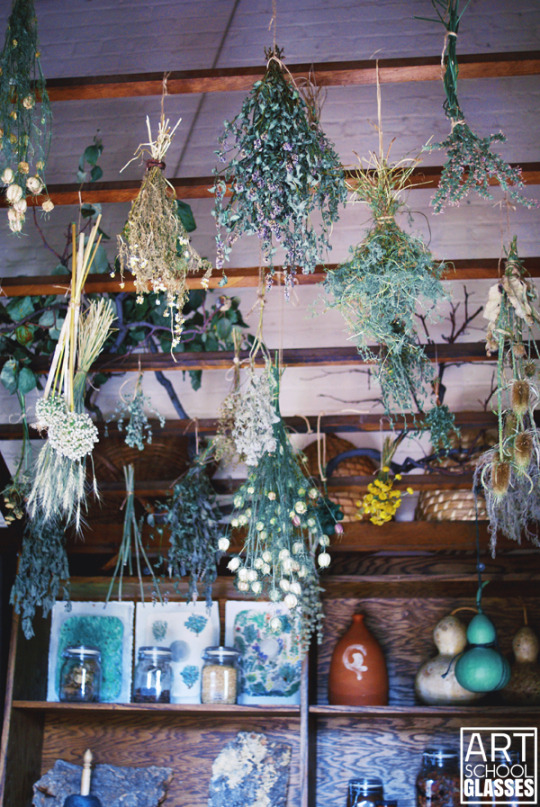
Drying plants at the Met Cloisters
New York City, United States
#met#met cloisters#cloisters#New York city#nyc#new york#usa#america#United States#north america#travel#travelling#museum#plants#nature#my photos
23 notes
·
View notes
Text
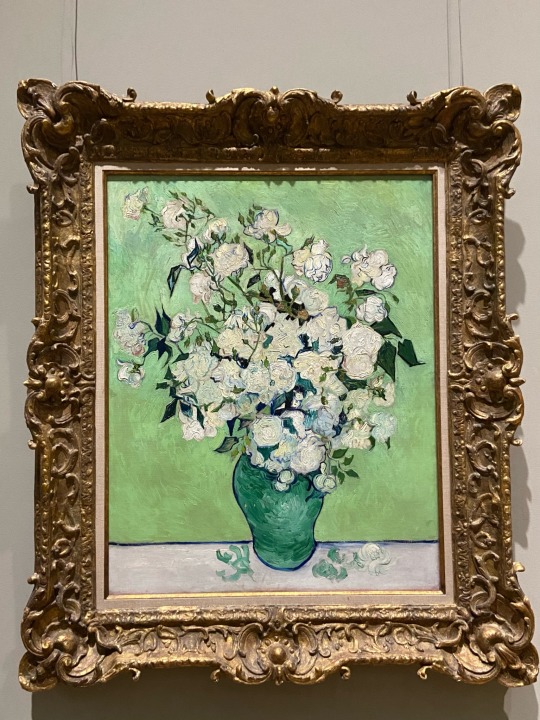


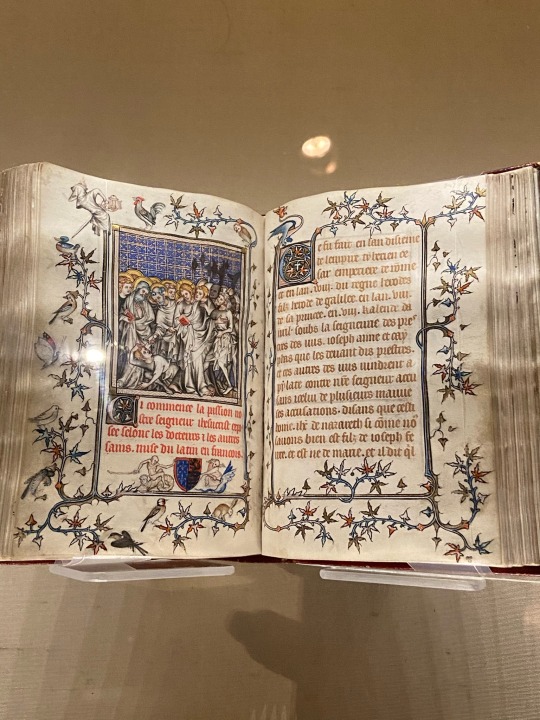
Top left photo from the MET on fifth ave: Roses, Vincent Van Gogh, 1890
Top right and bottom row from the MET Cloisters: Standing Virgin and Child, attributed to Nicklaus Gerhaert von Leyden, 1470; Enthroned Virgin and Child, artist unknown, 1280-1300; The Prayer Book of Bonne of Luxembourg, attributed to Jean le Noir, before 1349
#studyblr#history studyblr#art history#studying#history#study motivation#student#history student#study movitation#study aesthetic#art history student#student aesthetic#art#the met museum#the cloisters#annie talks#mostly to myself
13 notes
·
View notes
Text
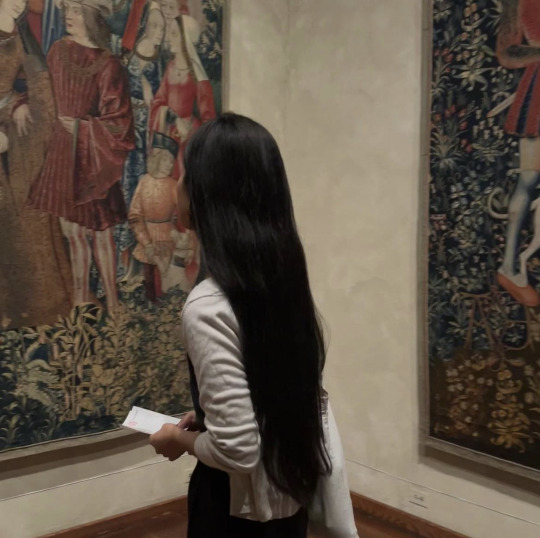
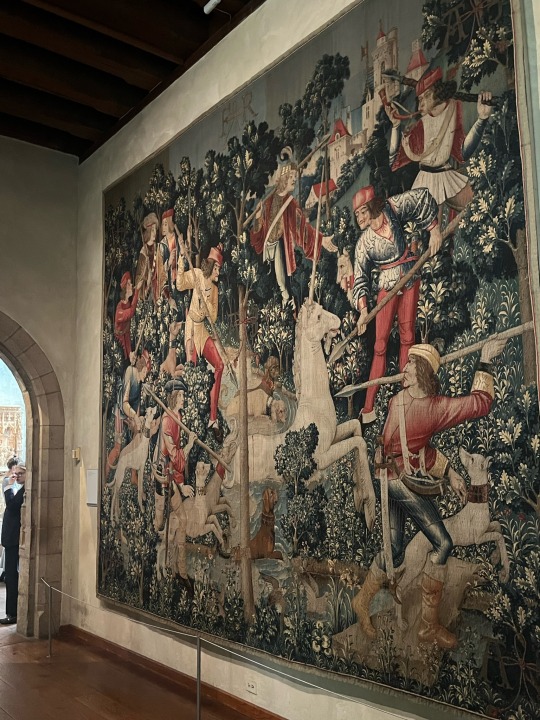
#nyc#nyc aesthetic#the met#the met cloisters#the unicorn#the unicorn tapestries#dark academia#dark aesthetic#museums#the metropolitan museum of art
4 notes
·
View notes
Text
Museum Spotlight- The Met Cloisters
While the Metropolitan Museum of Art is one of my favorite museums in New York, I’d only managed to visit The Cloisters this past winter. Located in Fort Tryon Park in Upper Manhattan, this offshoot of the Metropolitan Museum of Art is easy enough to get to from the city via public transportation, but I chose to drive in for my visit. Since it was winter, there weren’t a lot of other visitors…

View On WordPress
4 notes
·
View notes
